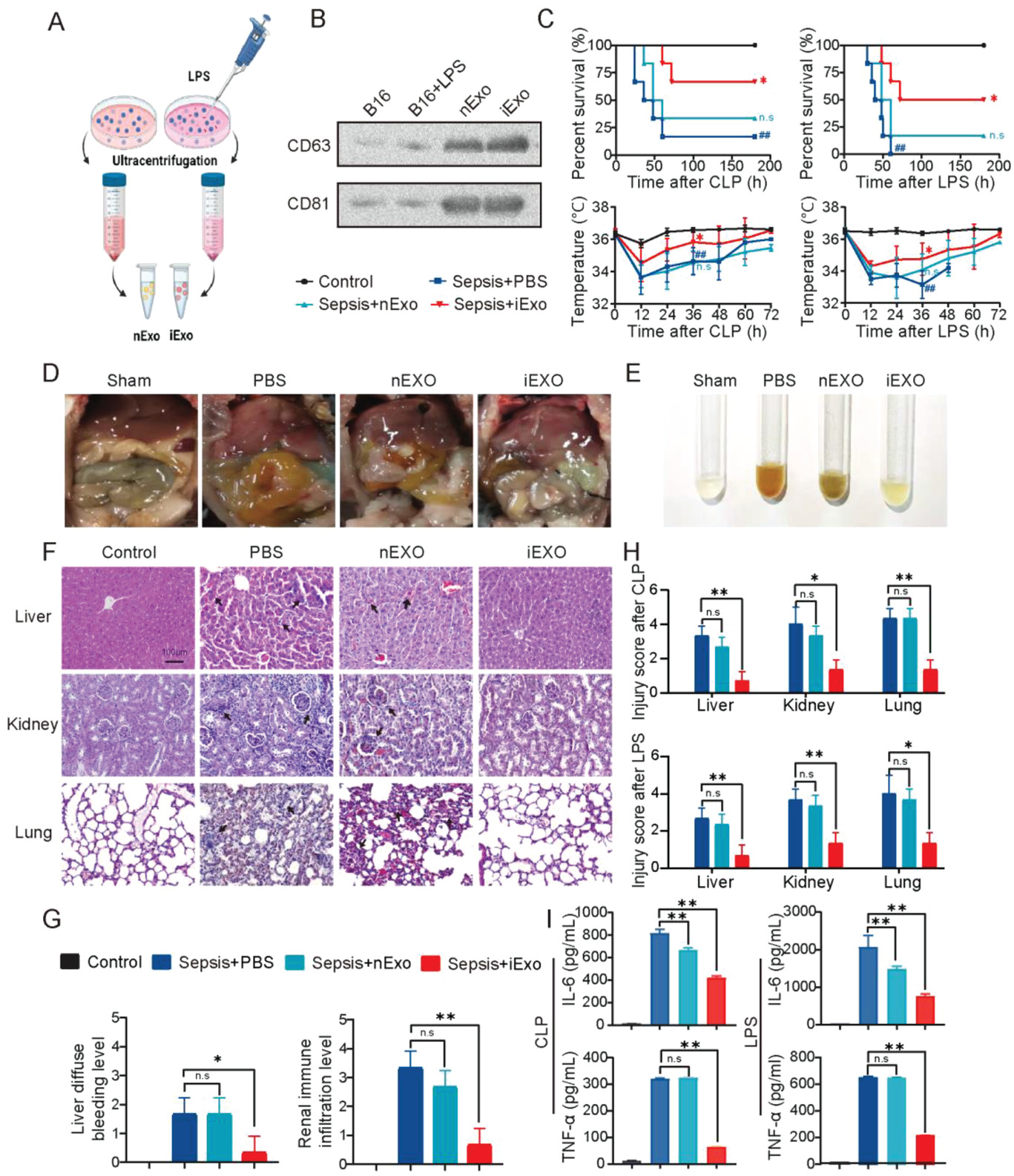Abstract
Sepsis is a disease characterized by multiple organ failure caused by immune hyperactivation and cytokine storms. Studies have shown that the incidence of sepsis in melanoma patients is substantially lower compared to the general population. It is also observed that experimental tumor-bearing animals have high survival rates after sepsis induction, suggesting that tumors may suppress sepsis-associated immune overactivation, thereby alleviating sepsis. Based on the above-described findings, this work assesses whether tumor cells play an antisepsis role in mice through the secretion of exosomes. Analysis of exosome activity reveals that the induced exosomes (iExo) secreted by tumor cells following lipopolysaccharide (LPS) treatment improve sepsis to a greater extent than normal secretory exosomes. Further analysis reveals that iExo exert their protective effects mainly through seven key miRNAs. In vitro bionic simulation of exosomes is carried out using exosome mimics generated by loading the aforementioned microRNAs into hyaluronic acid–polyethylenimine nanoparticles. Exosome mimics at specific miRNA ratios alleviate sepsis in mice and cynomolgus monkeys, indicating that biomimetic simulation of tumor-suppressive exosomes may represent a promising therapeutic method for the treatment of sepsis and cytokine-storm-related conditions.

https://doi.org/10.1002/adma.202108476